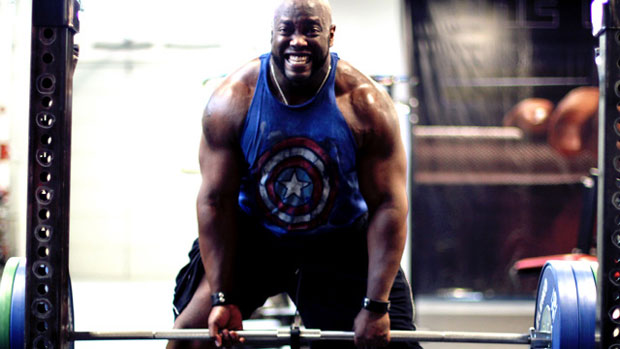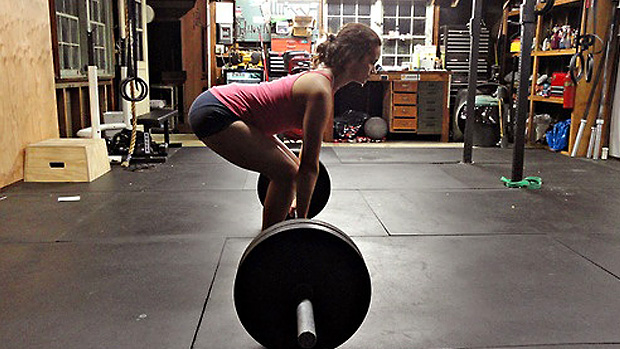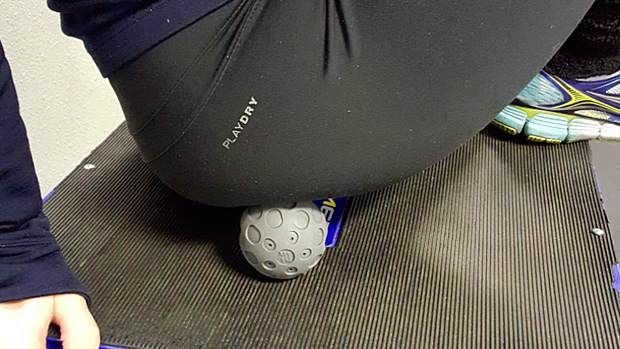It's the plight of every skinny guy in the gym. They want to get huge but their body has other ideas. The fly in the ointment is that while Joe Beanpole is busting his hump eating and training like a machine, his body seeks balance or homeostasis.
Understanding this means muscle growth must be forced. Remember how gains came so easy when you first started training but eventually slowed down or became nonexistent? Strength training must change regularly to force adaptation, but from time to time a smart bomb must be used to jump start sluggish muscle into growth.
Let's talk muscle fibers. There's slow twitch and fast twitch IIa, llb, and llc, and while you want to hypertrophy all of them, the Volume Ladder (VL) is used to hammer the lla's, and to a lesser extent the llb's.
Science tells us that by hitting a motor unit with a high amount of volume, the body's adaptive response is significant growth in the targeted muscles. Large training volumes haven't only been shown to contribute to increases in muscle mass, but also the loss of body fat.
Volume Ladder Basics
Think of a ladder. Now think of climbing up and then back down. The VL is that simple.
- Start at 1 rep.
- Add a rep per set until you reach 10.
- Now go back down the ladder by decreasing one rep per set until you're back to 1.
If you do the math, that's 100 magical, growth-producing reps.
You may be thinking that this sounds a lot like German Volume Training and you'd be correct. The main difference is that the VL is much easier for the mind to process. If you've tried GVT, you know that at around set 7 or 8 the urge to say "screw it" really kicks in. With the VL you just process one rep at a time, making it easier to complete the entire session and thus get in all the precious volume.
Volume Ladder Variations
1. Single ladder
Pick one movement for the given body part and rest 15-60 seconds between sets. If you find yourself sucking wind (this can happen at the higher end reps), then rest a bit longer. Choose the biggest "bang for the buck" movements for best results.
2. Double ladder
Pick one movement for one muscle group and superset it with a movement for its antagonist. Rest the amount of time that it takes to move between movements, but if you're sucking wind, then rest a bit more. An example is a horizontal push with a horizontal pull (bench and row), vertical press with vertical pull (standing press with chin), hip dominant and a quad dominant (Romanian deadlift with a leg press).
3. Upper-lower double ladder
This combines an upper body movement and lower body movement. The upper-lower double ladder is also very good for increasing GPP and fat loss. Rest is again dependent upon your condition. Some of my favorites are a hip dominant movement with a vertical press or a quad dominant movement with a horizontal press.

Training Loads
As for load, 60% of 1RM is a good starting point. Very few individuals can handle more than 75% of their 1RM on the ladder. When using a single ladder, one can usually handle a higher percentage than if performing a double ladder, at least until conditioning improves.
When using the Volume Ladder – or any program for that matter – you should keep a detailed journal of the exact sets/reps, load, and rest intervals performed, and only count the repetitions completed in strict form.
Best movements
| Muscle Group | Exercise |
|---|---|
| Quad dominant | Squat, front squat, leg press |
| Hip dominant | Deadlift, rack pull |
| Shoulders | Any type of overhead press, standing or seated |
| Back | Deadlifts (definitely!), chins, rows |
| Chest | Barbell bench presses, but one could use dumbbells |
| Other | I personally have never trained the small muscle groups – the rest of the body gets plenty of stimuli when training the major muscle groups – but some of you bodybuilder types might want to give it a whirl. |
Frequency
The Volume Ladder isn't something to use for a long time but rather as a kick in the pants to get stubborn muscles growing again. I've never used it for longer than two weeks, but a few of my clients that are on the scrawnier side have used it for either six weeks straight or two weeks out of a four week rotation, both with great results.
For the truly scrawny, the Plazma™ and/or the Mag-10® Anabolic Pulse would be an ideal pairing with the VL.
Here's how I worked the VL into my off-season training:
| Day | Exercises |
|---|---|
| Monday | Conventional deadlift (70%) combined with the standing Axle press (70%) |
| Wednesday | Normal training session AM/Strongman event training afternoon |
| Friday | Back squat (65%) combined with Incline barbell press (70%) |
| Monday | Rack pulls (75%) from 13-inch height combined with Hammer delta press (70%) |
| Wednesday | Normal training session AM/Strongman event training afternoon |
| Friday | Front squat (70%) and Bench press (70%) |
This works for me. Depending on how you train, mix in the VL when you need a boost!
What to Expect
Soreness! The first time I tried this I stole my kids Pez dispenser, filled it with Advil, and basically ate them at will during the week!
But when clients say that they need to gain mass fast I always use the Volume Ladder. One of my athletes has done the VL for two weeks of every month since last football season and has gained 30 pounds of real muscle in 10 months! Granted, he's 16 and in his prime growth years, but you can't deny those are impressive results.
Big time results in a ridiculously short time are possible when you combine hard work and consistency with a kick ass routine. Give the volume ladder a shot and see what you can accomplish!




